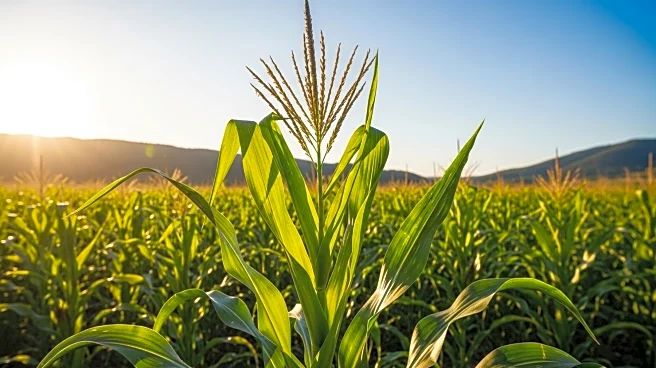What is the story about?
What's Happening?
Agricultural experts are emphasizing the importance of planting corn seed with robust plant health, particularly on no-till acres where disease challenges are more prevalent. No-till farming, which involves minimal soil disturbance, can lead to increased disease pressure, making the selection of resilient corn varieties crucial for successful yields. This approach aims to enhance plant health and mitigate risks associated with diseases that thrive in undisturbed soil environments.
Why It's Important?
The focus on strong plant health in corn cultivation is vital for maintaining crop yields and ensuring food security. No-till farming practices are gaining popularity due to their environmental benefits, such as reduced soil erosion and improved water retention. However, these practices also present unique challenges, including heightened disease risks. By selecting corn varieties with strong disease resistance, farmers can optimize their production while adhering to sustainable farming practices. This strategy supports the agricultural industry's efforts to balance productivity with environmental stewardship.















